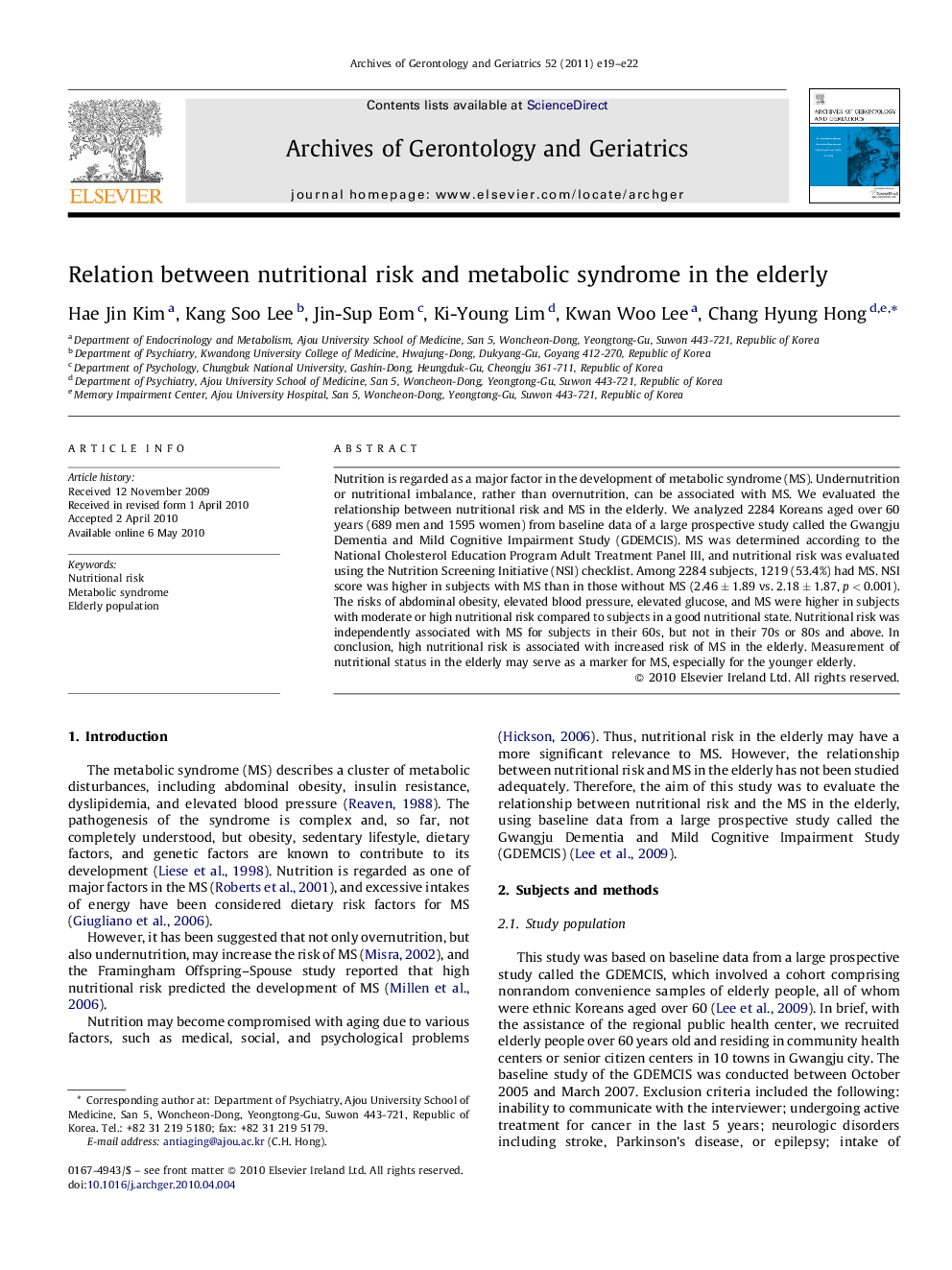| Article ID | Journal | Published Year | Pages | File Type |
|---|---|---|---|---|
| 1903611 | Archives of Gerontology and Geriatrics | 2011 | 4 Pages |
Nutrition is regarded as a major factor in the development of metabolic syndrome (MS). Undernutrition or nutritional imbalance, rather than overnutrition, can be associated with MS. We evaluated the relationship between nutritional risk and MS in the elderly. We analyzed 2284 Koreans aged over 60 years (689 men and 1595 women) from baseline data of a large prospective study called the Gwangju Dementia and Mild Cognitive Impairment Study (GDEMCIS). MS was determined according to the National Cholesterol Education Program Adult Treatment Panel III, and nutritional risk was evaluated using the Nutrition Screening Initiative (NSI) checklist. Among 2284 subjects, 1219 (53.4%) had MS. NSI score was higher in subjects with MS than in those without MS (2.46 ± 1.89 vs. 2.18 ± 1.87, p < 0.001). The risks of abdominal obesity, elevated blood pressure, elevated glucose, and MS were higher in subjects with moderate or high nutritional risk compared to subjects in a good nutritional state. Nutritional risk was independently associated with MS for subjects in their 60s, but not in their 70s or 80s and above. In conclusion, high nutritional risk is associated with increased risk of MS in the elderly. Measurement of nutritional status in the elderly may serve as a marker for MS, especially for the younger elderly.
